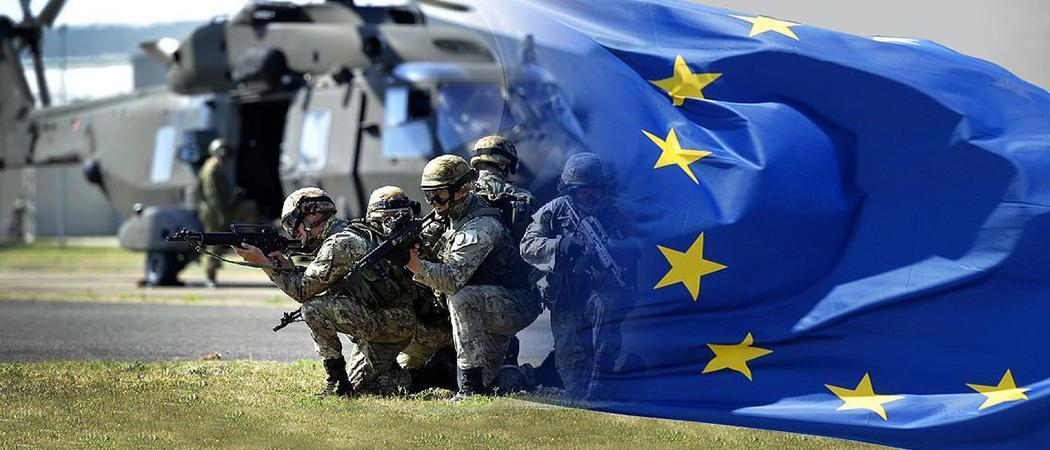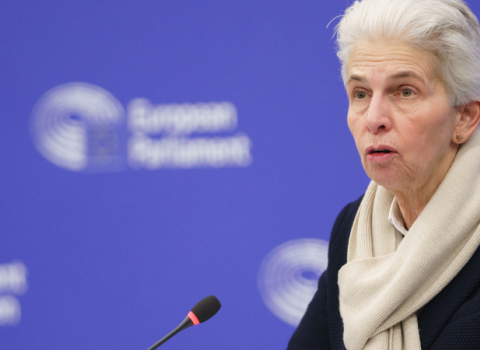A three-year pilot programme designed to lay the ground for the EU’s first move into funding defence R&D did not fulfil its purpose. A more strategic approach is needed to ensure research is translated into new defence technologies

Photo: European Defence Agency
EU auditors are calling on the European Commission and the European Defence Agency (EDA) to come up with a long-term strategy for defence R&D, to make sure that technologies developed with EU money are deployed by member states and the defence industry.
A report by the European Court of Auditors (ECA) published on Wednesday, says the EU €90 million preparatory action on defence research (PADR) programme was only partially useful in getting the EU ready to ramp up defence R&D spending through the new €8 billion European Defence Fund (EDF). The EDF is an unprecedented attempt by the EU to bring together research and industry in the field of defence technologies.
The auditors say the ground was not properly prepared because the €90 million PADR pilot that started in 2017 did not deliver results in time for the fully fledged launch of EDF in 2021.
“Unfortunately, given the time constraints, and limited availability of project results, the value of the [pilot] as a testbed for the EU defence spending was reduced,” said ECA member Viorel Ștefan.
“The Commission should work with member states to develop a long-term strategy, which is essential for the future of the EDF as the EU’s main defence fund,” Ștefan said.
The report says the pilot scheme did help the European Commission and the EDA understand how to manage cooperative defence research projects. However, there needs to be a long-term strategy for making sure technologies developed with EDF money are taken up by the EU defence sector.
The three-year pilot programme was meant to leverage research results to boost competitiveness and innovation in the European defence industry. It was implemented jointly by the Commission and the EDA, and was the first time the EU budget was used to fund R&D in the defence industry.
Testing options
But, the auditors say, the pilot project was too small and short to provide the Commission with a solid base for delivering a €8 billion investment in defence R&D. The launch of EDF in 2021 marked a fundamental shift in how the EU sees its role in spurring new defence technologies.
The Commission and the EDA were able to trial various types of calls and evaluation strategies but the Commission did not have enough time to translate the lessons learned into the €8 billion defence programme. “Although the PADR provided the EU with an opportunity to test different options in funding defence research, delays and the paucity of results limited the lessons learnt for its bigger successor, the EDF,” said Ștefan.
Projects in the pilot progressed slowly, experienced delays and overlapped with the launch of the €8 billion fund. When the first EDF calls were launched in May 2021, most projects that started under the pilot were still ongoing, with only two completed.
The auditors say security requirements for project applicants in the pilot were “sometimes considered excessive” and delayed the signing of grant agreements.
In addition, project coordinators and participants were concentrated in a handful of member states that already have large defence industries, such as France, Germany, Italy, Spain and Sweden. Combinations of the same companies took part in several projects.
Projects did not start with a plan for the subsequent development of research results or transitioning to production and procurement.
The Commission has to address strategic issues that could prevent EDF projects from achieving their intended impact, the auditors saying, calling for a long-term strategy to ensure new technologies reach the defence sector. The strategy should also set out whether EDF should focus on many small projects or a small number of larger ones.
The ECA is to present the report to the European Parliament and to member states and will continue its evaluation of EU defence programme.





 A unique international forum for public research organisations and companies to connect their external engagement with strategic interests around their R&D system.
A unique international forum for public research organisations and companies to connect their external engagement with strategic interests around their R&D system.